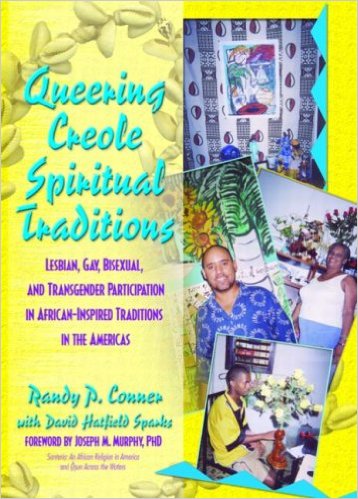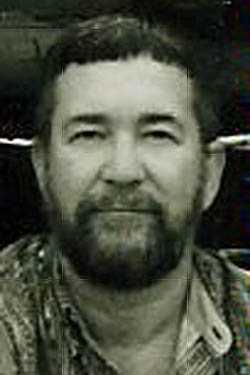

|
Contact Us Table of Contents Search Site Google listing of all pages on this website Site Map Toby Johnson's Facebook page Toby Johnson's YouTube channel Toby Johnson on Wikipedia Toby Johnson Amazon Author Page  Secure site at https://tobyjohnson.com Also on this website: As an Amazon Associate
I earn from qualifying purchases. Toby Johnson's books: Toby's books are available as ebooks from smashwords.com, the Apple iBookstore, etc. FINDING
YOUR OWN TRUE MYTH: What I Learned
from Joseph Campbell: The
Myth
of the
Great Secret
III GAY SPIRITUALITY: The Role of Gay Identity in the Transformation of Human Consciousness
GAY PERSPECTIVE: Things Our Homosexuality Tells Us about the Nature of God and the Universe
SECRET MATTER, a sci-fi novel with wonderful "aliens" with an Afterword by Mark Jordan
GETTING
LIFE IN PERSPECTIVE:
A
Fantastical Gay Romance set in two different time periods
THE FOURTH QUILL, a novel about attitudinal healing and the problem of evil TWO SPIRITS: A Story of Life with the Navajo, a collaboration with Walter L. Williams CHARMED LIVES: Spinning Straw into Gold: GaySpirit in Storytelling, a collaboration with Steve Berman and some 30 other writers THE MYTH OF THE GREAT SECRET: An Appreciation of Joseph Campbell
IN SEARCH OF GOD IN THE SEXUAL UNDERWORLD: A Mystical Journey
Books on Gay Spirituality: White Crane Gay Spirituality Series
Articles and Excerpts:
Review of Samuel Avery's The Dimensional Structure of Consciousness Funny Coincidence: "Aliens Settle in San Francisco" About Liberty Books, the Lesbian/Gay Bookstore for Austin, 1986-1996 The Simple Answer to the Gay Marriage Debate A Bifurcation of Gay Spirituality Why gay people should NOT Marry The Scriptural Basis for Same Sex Marriage
Gay ConsciousnessQ&A about Jungian ideas in gay consciousness What Jesus said about Gay Rights Common Experiences Unique to Gay Men Is there a "uniquely gay perspective"? Interview on the Nature of Homosexuality What the Bible Says about Homosexuality Mesosexual Ideal for Straight Men Waves of Gay Liberation Activity Wouldn’t You Like to Be Uranian? The Reincarnation of Edward Carpenter Why Gay Spirituality: Spirituality as Artistic Medium Easton Mountain Retreat Center Andrew Harvey & Spiritual Activism The Mysticism of Andrew Harvey
Enlightenment
Joseph Campbell's description of Avalokiteshvara You're Not A WaveJoseph Campbell Talks about Aging What is Enlightenment? What is reincarnation? How many lifetimes in an ego? Emptiness & Religious Ideas Experiencing experiencing experiencing Going into the Light Meditations for a Funeral Meditation Practice The way to get to heaven Buddha's father was right What Anatman means Advice to Travelers to India & Nepal The Danda Nata & goddess Kalika Nate Berkus is a bodhisattva John Boswell was Immanuel Kant Cutting edge realization The Myth of the Wanderer Change: Source of Suffering & of Bliss World Navel What the Vows Really Mean Manifesting from the Subtle Realms The Three-layer Cake & the Multiverse The est Training and Personal Intention Effective Dreaming in Ursula LeGuin's The Lathe of Heaven Gay
Spirituality
|
 Queering Creole Spiritual Traditions: Lesbian, Gay, Bisexual, and Transgender Participation in African-Inspired Traditions in the Americas by Randy P. Conner and David Sparks Routledge trade paperback, 402 pages, $29.95 March 2004 978-1560233510 Available from Amazon.com -- new and used -- paperback. Also available for Kindle Queering Creole Spiritual Traditions: Lesbian, Gay, Bisexual, and Transgender Participation in African-Inspired Traditions in the Americas (Haworth Gay & Lesbian Studies) This
review appeared in White Crane Journal #65 Summer 2005
As participant-observers, Randy Conner and his partner David Sparks investigated—and, more importantly, experienced—a set of religions that are routinely ignored and/or misunderstood by the mainstream. Beyond the so-called Great Religious Traditions, there are a set of shamanic-like religions, inspired by ancient African faiths and often blended with Catholic imagery and ritual, that have flourished throughout Central and South America. Conner refers to these loosely as Creole Spiritual Traditions: Vodou, Santeria, Condomblé, Ifa/Orisha tradition, Espiritismo, and more. These religions differ significantly from what most of us know as mainstream religion because they honor direct experience of God and the gods, not merely mythical information and doctrine. This is the shamanic character of these religions, and it shows up in the phenomena of spirit possession (though that is something of a misnomer). Being a Christian means agreeing to a series of historical propositions about Jesus and his followers along with an elaborate set of metaphysical propositions about God and afterlife. Certainly Christians struggle to develop personal relationships with the characters of the religion, but they don’t become them. Practitioners of the African-based religions, on the other hand, not only develop connections with various personal manifestations of the spirit world, they allow themselves to be mounted and taken over by these spirits, so that the spirits can actually speak through them and make their desires, intentions, and plans known directly. Conner reports that he became especially interested in these religions after meeting a Cuban-American poet, artist, and practitioner of Santeria at a Radical Faerie gathering in 1985. Especially because the spirits routinely “possess” followers cross-sexually (i.e., a female spirit manifests through a male believer with characteristically feminine traits, gestures, and behaviors) and because the spirits frequently manifest with both masculine and feminine aspects, these religions seemed to demonstrate sex-role liberation and queer sensibility. Gay people seemed to be welcomed into the religions, and often given honored status, perhaps specifically because their flexibility with gender reflects the flexibility of the guardian spirits. Through an invitation from Latina lesbian writer/activist Gloria Anzaldúa, Randy and David began to make friends with practitioners of these traditions, and to find what seemed like gay-welcoming, mystically-rich spiritualities among cultures of people-of-color. They visited and interviewed priests/priestesses and practitioners and documented their research over some 20 years. From that work came Queering Creole Traditions. The book turned out different from what was originally expected, for as the two spiritual investigators began to ask questions and learn more about the traditions, they discovered they really aren’t so gay/queer-welcoming and so free of homophobia as they’d first thought. There are clear anti-homosexual strains within the religions. But what that points to is the complexity of gender and sexual identity. Perhaps that’s not surprising, for these religions also point to the complexity of self and personal identity. That the spiritual world can manifest through individual human beings challenges our commonsense (and Westernized) ideas of ego and personhood. The book consists roughly of four parts: an overview of the so-called African-diasporic traditions along with a very detailed list of the various divinities and spirits (and a glossary); a report on written and ethnographic accounts of these religions, especially focusing on questions of sexual and gender identity and behavior (and an extensive bibliography); a lengthy and personalized presentation of interviews Conner and Sparks conducted between 1981 and 2003 with individual practitioners; and finally an analysis (also including more interviews) of how these traditions have influenced artists of various kinds, including writers, musicians, and visual artists—notably highlighting and honoring lesbian poet Audre Lorde. There is a vast amount of information in this book. Indeed, if there is a problem with the book it is that there’s just so much information. The section on the divinities is exemplary of this problem: each of the divinities has alternate names in the various traditions with alternative spellings and varying mythic emphases. There is an encyclopedic quality to this section—which should not be surprising: Conner and Sparks (along with their daughter Mariya) are also authors of the Cassell’s Encyclopedia of Queer Myth, Symbol and Spirit. Still, there is a personal presence in the interview sections and a pleasant voice in the analytic sections which makes the book readable and accessible. This is important research. It sheds light not only on LBGT studies, but also on world theology and study of comparative religion as well as on psychological discussions of the nature of self and gender. Our common work to create a so-called gay spirituality calls us for all sorts of reasons to be inclusive and wide-ranging. Recognizing and incorporating into our vision the religions of Africa and their manifestations in the Americas is a necessary, and heretofore neglected, aspect of that work. If you think you know enough already about these religions, then you should read this book—to discover there’s more to learn. And if you think you don’t need to know about them, then you should read it—to expand your awareness of what religion and spirituality actually are. Reviewed by Toby Johnson, author of Gay Spirituality: Gay Identity and the Transformation of Human Consciousness, The Myth of the Great Secret: An Appreciation of Joseph Campbell and other novels and books  Read an interview with Randy Conner from White Crane Journal |
![]()
Toby Johnson, PhD is author of nine books: three non-fiction books that apply the wisdom of his teacher and "wise old man," Joseph Campbell to modern-day social and religious problems, four gay genre novels that dramatize spiritual issues at the heart of gay identity, and two books on gay men's spiritualities and the mystical experience of homosexuality and editor of a collection of "myths" of gay men's consciousness.
Johnson's book
GAY
SPIRITUALITY: The Role of Gay Identity in the Transformation of
Human Consciousness won a Lambda Literary Award in 2000.
His GAY
PERSPECTIVE: Things Our [Homo]sexuality Tells Us about the Nature
of God and the Universe was nominated for a Lammy in 2003. They
remain
in
print.
FINDING
YOUR OWN TRUE MYTH: What I Learned from Joseph Campbell: The Myth
of the Great Secret III tells the story of Johnson's learning the
real nature of religion and myth and discovering the spiritual
qualities of gay male consciousness.
